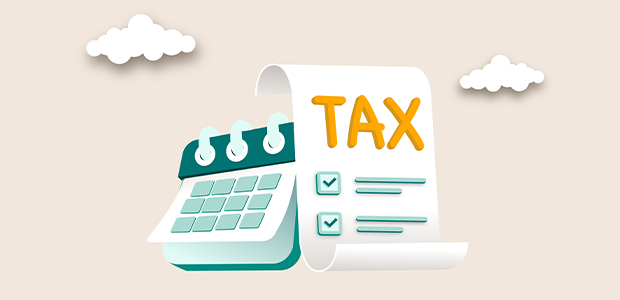
Top 4 tips for doing business differently this New Tax year
With the calendar having flipped to the 2024/25 tax year, small business owners across the UK are poised to seize new opportunities and tackle challenges. Regardless of whether you’re a seasoned entrepreneur or a budding business owner, strategic adaptations can significantly enhance your operational efficiency.
According to a recent survey from QuickBooks, 60% of UK small business owners are feeling optimistic about the new tax year, with 99.6% recognising it as the perfect opportunity for doing business differently. 52% plan to leverage AI to enhance tax efficiency, 50% plan to find ways to reduce tax liabilities in compliance with laws and regulations, and 48% plan to upgrade their financial management systems.
Now, as the UK government ushers in a series of new changes for the 2024/25 tax year, staying abreast of the economic landscape while ensuring compliance with updated tax laws will be crucial for you to effectively manage your businesses and confidently step into this financial year.
Here are four tips from accounting expert Abul Nurujjaman of Taj Accountants, to help small businesses set themselves up for success in this new tax year.
Think about your pricing strategy to boost your bottom line
A carefully considered pricing strategy can significantly impact your bottom line. Therefore, it’s essential to approach pricing with precision and foresight. You should create a compelling value proposition for your products or services to emphasise the unique features that distinguish your offerings. This will allow you to determine the best pricing strategy tailored to your business objective.
The new tax year is an opportunity to rethink your pricing and evaluate the value you provide to customers. Remember, if your product is too expensive, sales may suffer. Conversely, if it’s too cheap, you might struggle to cover costs.
Manage open invoices better to get your clients to pay on time
Efficient management of open invoices is crucial for maintaining healthy cash flow and overall financial stability. As invoices accumulate, it becomes easier to overlook them, leading to delayed payments. Implement a system to monitor accounts receivable, send reminders to customers, and prevent further sales to customers with outstanding invoices.
Maintain a strong balance sheet
Balance sheets play a crucial role in evaluating the financial health of your business. Maintaining a strong balance sheet means your business can meet its financial obligations and be resilient, particularly in challenging economic environments and when it comes to financial milestones, like the new tax year.
Regularly compare your assets to your liabilities and equities to ensure they are in balance and utilise accounting tools to create and monitor your balance sheet effortlessly.
Better manage your cash flow
Understanding your cash inflows and outflows is key to making informed business decisions. Prepare a statement of cash flows using accounting software to gain insight into your financial position. This statement categorises cash movements into three sections, that cover cash flow from operations, investing and financing activities, providing a comprehensive overview of your business's finances.
By implementing these strategies, small business owners can navigate the new tax year with confidence, and there are a host of digital tools such as QuickBooks that can support small businesses to do this, positioning themselves for success amidst evolving challenges and opportunities.

